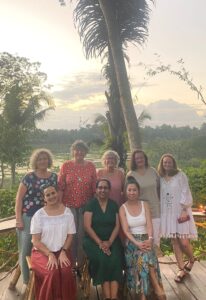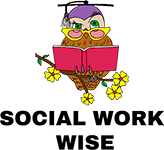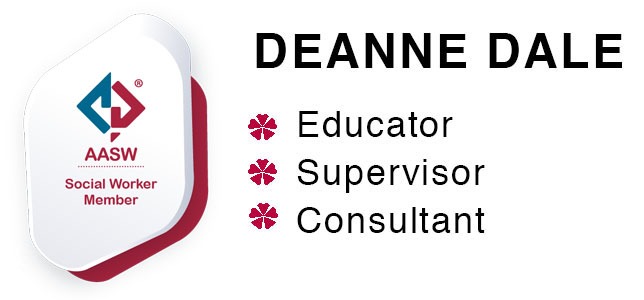When I sat down to compose my annual ‘Social Work Wise in the rear-view mirror’ post, it occurred to me that to speak from the ethical intentions of social justice doing I must take an ‘outside-in’ approach by reviewing the social, political and cultural contextual factors that influence the work I choose to do at this late stage of my social work career.
While there are many factors that shape SWW practice, there are two that I would like to address in terms of 2023:
- The on-going impacts of colonisation, both at home and abroad
- The psych-colonisation of women and children who have been subjected to relational and systemic violence.
I understand these factors to be inter-related and occurring in the broader context of global patriarchal capitalism.
Colonisation
As an aspiring ally to Aboriginal and Torres Strait islander people, I was dismayed and disheartened by the process and outcome of the Voice to Parliament referendum in October. I have many Aboriginal and Torres Strait Islander clients, colleagues and friends and I was required ethically to prioritise my support of them through the injustices and adversities they responded to in ‘walking in two worlds’ as Aboriginal people working within Australian welfare systems and organisations. The daily racist micro-aggressions they are subjected to, and the organisational burdens placed on them to respond to systemic failings and shortcomings are enormous. A contribution I intend to make is to bear witness to these injustices as well as supporting acts of resistance and solidarity within communities that bring the hope necessary to sustain them. Likewise, I have prioritised supporting all other non-Indigenous colleagues who are acting within their own spheres of work as allies.
While the global contexts of colonisation do not have as direct an impact on the work of SWW, I refuse to ignore the colonisation of Palestine by the state of Israel and the on-going horrors inflicted on Palestinian people and their communities. I try not to be overwhelmed by the bombardment of traumatic images in mainstream and social media of dead or dying children and their grieving families and the sense of helplessness and hopelessness they generate. I prefer to be inspired by these images to engage in acts of protest and resistance in solidarity with like-minded people instead of remaining a bystander to this genocide.
Psych-colonisation
Most of the supervision work of SWW is with women supporting other women and their children who have been subjected to violence from men they have intimate partner and familial relationships with. Men who choose to use violence are organising and using the internet to expand their repertoire of abuse with advanced surveillance technologies and have discovered more legal loopholes to extend financial constraints. Hence the work with these women is ever more complex and stressful to keep up with and resist these strategies of coercive control. I have been shouldering up workers in their efforts to do this alongside continuing resistance to the pathologisation of women and children through mental illness diagnoses and the attendant medicating and social control via casework. Most of the people I have supervision relationships with are interested in developing their knowledge and skills in approaches to counselling and casework that resist this pathologisation such as Response-based practice and Narrative therapy.
Highlights of 2023
The SWW response to these factors has specific intentions of creating communities of solidarity and generating hope.
Mimpi Bali retreat in Ubud, July 2023 was one such project. One of the dreams I have held on to for a few years is to bring a group of comrades with me to the Indonesian island of Bali to rest and reflect together and be inspired by the beauty of the natural features of the island, the people and their culture. For six days in July a group of eight women who do social work in a wide range of settings engaged in collaborative auto-ethnography research and outsider witnessing conversations in response to questions generated by the group: What are you retreating from and to in this experience and what difference will it make to your practice? We discovered a lot of common ground in our responses to these questions, but also points of departure that generated lively discussion and many ‘lightbulb moments’. Sharing the retreat experience created a community that has been sustained by a Whatsapp chat where we share ideas and resources with each other and support acts of resistance. Many group members are keen to repeat the experience and are joining me July 16-21, 2024 along with some new group members.

Another exciting practice development of SWW has been in social justice informed team development and leadership work in collaboration with long-time colleague and friend Melissa Brown. Inspired by the ideas of Vikki Reynolds, our work with various NGOs we have been inviting teams into exploring ‘walking the talk’ of organisational and professional ethics and mission statements alongside their collective personal ethics. We are interested in developing a social justice informed human resources framework and practices alongside like-minded organisations and continuing to facilitate staff development and team training days.
Always a joy and inspiration of SWW is being given the honour of contributing to the professional development of early career social work practitioners. I have several former students that I have been supporting in various roles since graduation that are now in team leadership roles or growing thriving independent practices.
I am grateful to the various organisations that have trusted me to maintain my supervision relationships with their wonderful workers including:
- Waminda South Coast Women’s Health and Wellbeing Aboriginal corporation
- Catholic Care, Illawarra Shoalhaven
- Office of Public Prosecutions, Witness Assistance Scheme
- Sydney Domestic Violence Court Advocacy Service
- Weave Youth and Community Services
- The Deli
- Rosie’s place
And the following NSW Health Local Health Districts:
Western Sydney, Illawarra Shoalhaven, Far West, Hunter New England, Nepean Blue Mountains and Northern Sydney.
I finally would like to acknowledge those workers who have stuck with me over many years and many positions and have shared the stories of their work with me, striving to practice according to socially just ethics and sustaining a healthy work and life balance and harmony.I also acknowledge the support of my own clinical supervisor, Dr. Matt Rankine from the University of Auckland who is helping me shape some ideas on de-colonising and de-psycholonising supervision approaches into possible doctoral research and has kept holding me accountable to my preferred ethical stance and intentions as a supervisor.
Looking forward to a productive 2024 in solidarity.
Deanne


